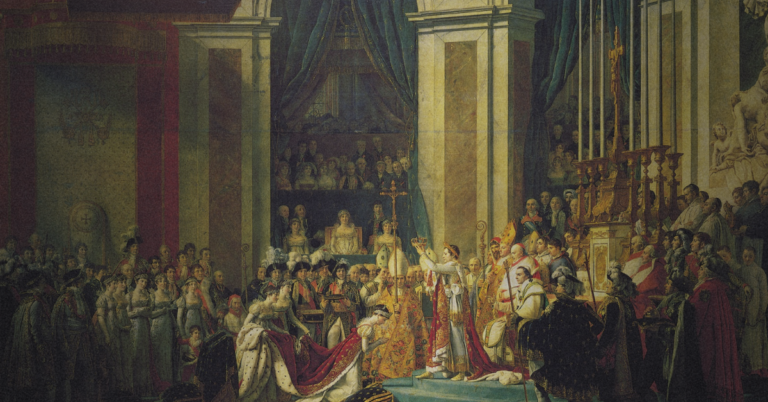For centuries, many women have misunderstood and downplayed the power of their God-given influence. We’ve assumed that our role was simply to serve as subservient companions or helpmeets, while men received all the glory and recognition in their leading roles.
However, time has revealed a beautifully empowering truth — when we take a closer look at both ancient scriptural texts and modern translations of scripture, we find affirmations that celebrate the strength of womanhood – something most notably seen in the Hebrew phrase ‘Ezer Kenegdo’. According to Genesis 2:18, God created Eve, called woman, as a helper comparable to man, emphasizing the importance of understanding the true purpose and identity of women as revealed in this Scripture.
In this blog post, through insightful exploration into etymology and cultural background knowledge, we’ll unearth how misinterpretation and misguided beliefs have resulted in limiting ideologies about women’s roles in relationships or marriage.
Related Reading: 10 Week Bible Study for Women That Has Nothing To Do With Cooking & Cleaning
What Bible verse do we get the word helper from?
18 The Lord God said, “It is not good for the man to be alone. I will make a helper suitable for him.” Genesis 2:18, NIV (New International Version)
18 Then the LORD God said, “It is not good for the man to be alone. I will make a helper who is just right for him.” Genesis 2:18, NLV (New Living Translation)
18 Then the LORD God said, “It is not good that the man should be alone; I will make him a helper fit for him.” Genesis 2:18, ESV (English Standard Version)
18 And the LORD God said, “It is not good that man should be alone; I will make him a helper comparable to him.” Genesis 2:18, NKJV (New King James Version)
The Great Debate: Is the woman a helper or equal companion?
For centuries, we have been led astray, either by ignorance or malice, into interpreting the Bible in a way that demeans women. This tragic twisting of God’s word has created a monster of misunderstanding, casting a dark shadow over the true message of the Bible regarding women’s worth.
We live in a world where human beings cling to a single word as if it were a life raft in a stormy sea, a word that has been taken out of context and manipulated to fit a preconceived notion of gender roles. This is the world we live in, where the word “helper” in Genesis 2 has been used to justify the subjugation of women for far too long.
Sadly, time and time again, I encounter women who wrestle with their faith in Christianity. They are convinced that, in God’s eyes, they are inferior to men, and this belief leads them to dismiss the entire Bible based on a single, misunderstood word: “helper.”
For starters, the word “help” or “helper” implies something very different in Hebrew than it does in English. The English word, “helper” most of the time suggests someone who is under a person in authority, like an assistant, for example.
However, this is very different from the Hebrew word, as “help” in this particular context comes from one who has the power to give help—it refers to someone in a position to offer help to a person who cannot help themselves. The Hebrew word for “helper” is “ezer,” which, when combined with “kenegdo,” describes a counterpart or equal, often used in a military context to denote a warrior.
What does the Hebrew word Ezer kenegdo mean?
The Hebrew word ezer, used to describe Eve as a companion to Adam, emphasizes her role as an equal counterpart. The roots of ‘ezer’ mean ‘to rescue, to save‘ and ‘to be strong‘, highlighting the strength and supportive nature of Eve in relation to Adam.
The term ezer appears twenty-one times in the Old Testament, but its meaning has been debated for centuries. Let’s dive into biblical interpretation and uncover the truth behind this term, starting by looking at the 21 times it is used:
- In Genesis 2 we see the term ezer twice [Genesis 2:18, Genesis 2:20], referring to the first woman, Eve.
- Three times [Isaiah 30:5, Ezekiel 12:14, Daniel 11:34], it is used to describe powerful nations that Israel sought help from during times of crisis.
- The term refers to God as our help in the remaining sixteen instances. [Exodus 18:4, Deuteronomy 33:7, Deuteronomy 33:26, Deuteronomy 33:29, Psalm 20:2, Psalm 33:20, Psalm 70:5, Psalm 89:19, Psalm 115:9, Psalm 115:10, Psalm 115:11, Psalm 121:1, Psalm 121:2, Psalm 124:8, Psalm 146:5, Hosea 13:9]
‘Ezer’- The noun form of the word
16/21 times the word ‘Ezer’ is used to describe God as the One who helps his people. God being called helper throughout the Scriptures brings honor to the helper position. Since God has been called the helper, a helper cannot be inherently inferior. So, if a woman has been made a helper fit for him, a woman as a helper to the man cannot mean the woman is inferior in any way as she never sheds her identity as God’s image-bearer.
‘Ezer’- The verb form of the word
Suppose we expand our investigation to verbal forms. In that case, we find a continuing predominance of God as the subject, though there are a handful of occurrences where people help people (i.e., Isaiah 41:6, Ezra 10:15, Joshua 10:4; 2 Samuel 8:5).
Ezer as a verb, however, also does not suggest a subservient status of the one helping; in fact, the opposite is more likely. Therefore we can, without a shadow of a doubt, conclude that “helper” cannot be understood as an inferior follower.
The Hebrew words ‘ezer kenegdo’ describe a companion like no other for the man, emphasizing the equality and corresponding nature of Eve to Adam. Through the lens of Hebrew grammar, ‘ezer’ signifies strength and active assistance, often used for God, suggesting mutual support and empowerment rather than inferiority.
” ‘Help’ in the English language is too weak a translation because it suggests a merely auxiliary function, whereas “ezer” in Scripture connotes active intervention on behalf of someone, especially in military contexts, as often in Psalms.” (Robert Alter, renowned expert on Hebrew literature) Understanding Ezer Kenegdo suddenly shifts the narrative, and we see that God intended for men and women to be partners, not one dominating the other.
How Ezer is used throughout Scripture?
God: The Ultimate Helper
Have you ever had a moment when you needed help with something, and someone came to your rescue? You probably felt relieved, grateful, and even awed by their assistance, right? Now imagine that feeling multiplied by infinity, and you might begin to grasp the concept of God as a “helper” or “ezer” in Hebrew.
When we think of God as our “helper,” it’s not like He’s just lending a hand with a flat tire or helping us move a couch. No, this “ezer” (pronounced “ay-zer”) is a powerful term that captures the essence of God’s strength, power, protection, and His role as a rescuer. In fact, this word is used 66 times in Scripture to describe God’s unwavering support. As Christian brothers and sisters, we share the same status as servants and children of God, emphasizing mutual love, care, and support without hierarchy.
Here are a few of those times:
Eliezer: When Your Name Says It All
Moses named his son Eliezer as a testament to God being Israel’s helper. In Exodus 18:4, he said, “My father’s God was my helper; he saved me from the sword of Pharaoh.” The name Eliezer, means “my God is helper” (“Eli” – my God; “Ezer” – helper).
Ebenezer: More Than Just Scrooge’s Last Name
Now let’s discuss another name you might recognize: Ebenezer. Before you start humming Christmas carols and thinking of miserly old men, let’s go back to its biblical origin. In 1 Samuel 7:12, the prophet Samuel raised a stone monument called the “Stone of Help” or “Ebenezer” because the Lord had helped them win a victory over their enemies.
The Holy Spirit: Your Personal Helper
And now, let’s talk about the Holy Spirit, who is described by Jesus as a “helper” or “advocate.”
In John 14:16-17, Jesus said, “And I will ask the Father, and he will give you another advocate to help you and be with you forever— the Spirit of truth.”
We know that the Holy Spirit is our advocate, advisor, counselor, and paraklētos (called to one’s aid) as an intercessor, consoler, comforter, and helper, who pleads another’s cause before a judge, counsel for the defense, legal assistant, giving evidence that stands up in court. Wow! Talk about having the ultimate support system!
After all, God and the Holy Spirit are also described as helpers. So, ladies, it seems like we may have bigger shoes to fill than we thought in a relationship!
Related Reading: Best Books that help explain the Holy Spirit
The Biblical Context of Ezer Kenegdo
The phrase “Ezer Kenegdo” is deeply rooted in the creation narrative of Genesis 2, where God creates woman as a helper comparable to man. This Hebrew phrase, often translated as “helper fit for him” or “suitable helper,” carries profound implications for understanding the role and identity of women in the biblical context.
The Hebrew word “Ezer” is derived from the root “ʿāzar,” which means “to help” or “to succor.” This word appears 21 times in the Hebrew Bible, frequently in contexts that denote strength and power. For instance, “Ezer” is often used to describe God as a helper to Israel, emphasizing divine strength and support. This usage underscores that the term “Ezer” does not imply subordination but rather denotes a powerful ally.
The second word, “Kenegdo,” comes from the root “neḡeḏ,” meaning “corresponding to” or “suitable for.” When combined, the phrase “Ezer Kenegdo” paints a picture of a helper who is equal and complementary to the man. This is not a role of inferiority but one of partnership and mutual support.
In the biblical narrative, God creates woman as an “Ezer Kenegdo” to address Adam’s loneliness, highlighting the importance of companionship and relational harmony. The creation of woman is presented as a divine solution to the problem of man’s solitude, emphasizing that she is a necessary and equal partner in the human experience.
The concept of “Ezer Kenegdo” also has significant implications for marriage. It suggests that the original intent of creation was for men and women to coexist as equals, supporting and complementing each other in their respective roles. This interpretation challenges traditional views that place women in subordinate positions and instead promotes a vision of mutual respect and partnership.
In the broader context of Semitic languages, the word “Ezer” consistently denotes a helper or assistant, often in contexts of strength and power. This reinforces the idea that the role of the woman as an “Ezer Kenegdo” is one of significant importance and strength.
In Christian theology, the concept of “Ezer Kenegdo” is sometimes used to describe the role of the Holy Spirit in the life of believers. Just as the Holy Spirit is a helper, guide, and source of strength, so too is the woman in her role as an “Ezer Kenegdo.” This parallel further elevates the status of women, aligning their role with that of the divine helper.
In conclusion, the biblical context of “Ezer Kenegdo” emphasizes the importance of relationships and companionship in human life. It highlights the idea of mutual support and equality between men and women, challenging traditional interpretations that have often placed women in subordinate roles. By understanding the true meaning of “Ezer Kenegdo,” we can appreciate the divine intent for men and women to be equal partners, supporting and complementing each other in all aspects of life.
What does Genesis 2 actually mean?
18 The Lord God said, “It is not good for the man to be alone. I will make a helper suitable for him.” Genesis 2:18, NIV (New International Version)
As our understanding of Hebrew continues to evolve, we often uncover new insights into ancient texts. One such case is the fascinating phrase “ezer kenegdo” found in the Old Testament, specifically in Genesis 2:18–20. This peculiar phrase has led to many interpretations and debates among scholars, yet its implications for gender equality within the biblical narrative cannot be denied.
Most English translations render “kenegdô” as “suitable for him,” “meet for him,” or “corresponding to him.” However, it is essential to note that this word appears only twice in the Old Testament, making it difficult to ascertain its precise meaning. Yet, we must not shy away from the challenge; let us delve deeper into this enigmatic word and its potential implications.
In both instances, “kenegdô” qualifies the word “ezer,” suggesting that Eve was created to be Adam’s corresponding and equal partner. This passage does not hint at subordination or hierarchy; instead, it paints a picture of harmony and equality.
This idea challenges many interpretations that place us as women in what many of us view as a less than role.
Imagine being a fly on the wall during the world’s creation, witnessing God’s thought process as He formed the first man and woman. “Hmm,” God might have mused, “I’ve created Adam, but it’s not good for him to be alone. I shall create a helper for him, but not just any helper – an ‘ezer kenegdo,’ a partner who corresponds to him in every way, an equal in every sense.”
This interpretation of “ezer kenegdo” has profound implications for our understanding of marriage. It suggests that the original intent of creation was for men and women to coexist, complementing and supporting one another in their respective roles.
Related Reading: What is a Godly Marriage?
Putting it all together…. How Ezer Kenegdo creates the Ultimate Partner
Now, let’s step back for a moment and consider the context of Genesis 2, where the woman is first introduced as the ezer kenegdo without specific qualifications, limits, or cultural restrictions.
To attempt to answer how exactly she was meant to help the man in his monumental task?
Was she a gardener extraordinaire, a master of soil and seeds? Or was she more of a companion to alleviate man’s loneliness in this verdant paradise?
Well, dear reader, it seems the answer lies within the divine commission given to humanity in Genesis 1:28: “Be fruitful, multiply, fill the earth, and subdue it. Rule the fish of the sea, the birds of the sky, and every creature that crawls on the earth.”
Together, as partners, they would tend to the garden and rule over its inhabitants.
But what if I told you that the term “ezer kenegdo” has an even more profound meaning?
Renowned scholar Robert Alter translates it as “sustainer beside him,” which gives the woman a more significant and powerful role. She’s a force to be reckoned with, who stands by the man’s side to face the challenges of their divine mission.
Using renowned scholar’s Robert Alter translation, a woman beside the “right” man will make all the difference in his world. And together, they might just create something beautiful and extraordinary.
Related Reading: How To Find A Godly Man
Why does a man actually need a woman?
Let us take a moment to ponder upon the fact that the first thing in all of creation that God calls ‘not good’ is the state of man being alone. Can you fathom the significance of this declaration?
It is a powerful testament to women’s vital role in life’s grand scheme. God, in His infinite wisdom, immediately perceived the need for women. This divine revelation suggests that the ‘suitable helper’ God created was not a mere subordinate but an indispensable counterpart to man.
Interestingly, before sin cast its dark shadows on the relationship between the sexes, God esteemed women as necessary for men. Now, one might ask, why are women deemed so essential in God’s master plan? What is it about their existence that makes them a crucial part of the divine blueprint?
To help answer the question we recommend this blog What is a woman’s purpose?
















